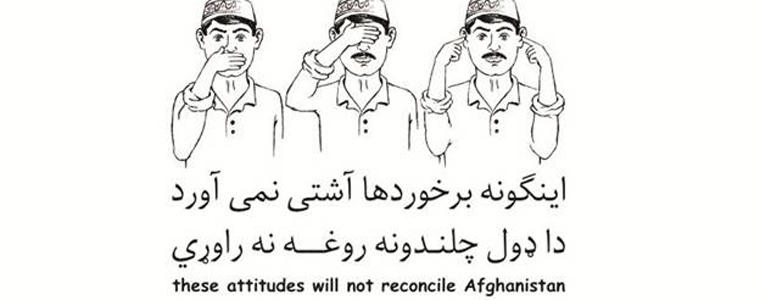Working in partnership with local civil society organizations, the U.S. Institute of Peace utilizes cost-effective approaches to model and field test practices that develop the capacity of local media to build public support for peace and reconciliation, while mitigating potential conflicts.

September 6, 2011
Working in partnership with local civil society organizations, the U.S. Institute of Peace utilizes cost-effective approaches to model and field test practices that develop the capacity of local media to build public support for peace and reconciliation, while mitigating potential conflicts.
Media can play a powerful role in shaping public attitudes. Media content can inflame violence, but it can also build public awareness of the benefits of nonviolent strategies of conflict resolution, and help to consolidate peace in societies emerging from conflict. Afghanistan's media sector, however, largely lacks the capacity to play a positive role in supporting Afghanistan's transition to peace.
Its limits are especially visible in the area of transitional justice. The few members of the Afghan media investigating sensitive war crimes and human rights violations frequently become victims of intimidation and violence. The constant threat of retribution undercuts the media's ability to produce profound, innovative journalism and inhibits the establishment of an unbiased and accurate public record of war crimes and human rights violations.
Reflecting the Institute's commitment to empowering others with knowledge, skills and resources that promote the peaceful resolution of conflict, USIP's Grant Program supports Afghan nonprofit organizations engaged in applied efforts to provide journalists with the ability to craft significant media products regarding transitional justice. With the support of USIP, The Killid Group (TKG) implemented a comprehensive media capacity building project that informed the public about human rights violations and war crimes by improving the capacity of Afghan journalists to research, investigate, and report on injustices of the past. The project began with two workshops to train more than 30 journalists, and continued with 10 weeks of mentoring by experienced international journalists that exposed the trainees to media standards and practices not customary in Afghanistan and developed the capacity to properly investigate and report on sensitive historical events.
The project resulted in 40 investigative radio broadcasts, each highlighting a specific war crime or human rights abuse that occurred in Afghanistan in the last 35 years. Each episode was 30 minutes long and included a roundtable discussion with relevant experts to interpret and highlight the specific controversies of each case.
To ensure that Afghan media establish a long term presence in support of effective transitional justice processes, TKG is also fostering relationships with civil society organizations by becoming the first media organization to join the Afghan Transitional Justice Coordination Group. They have partnered to initiate a public awareness program to engage the Afghan public in issues concerning justice, reconciliation, and peace.
While the immediate effect of USIP-funded media training is evident in the widespread dissemination of radio programming, TKG is also providing a powerful means for journalists to help build the historical record of atrocities inflicted on ordinary Afghans during decades of war, and thus to influence the general public and government as they continue Afghanistan's transition to peace.



